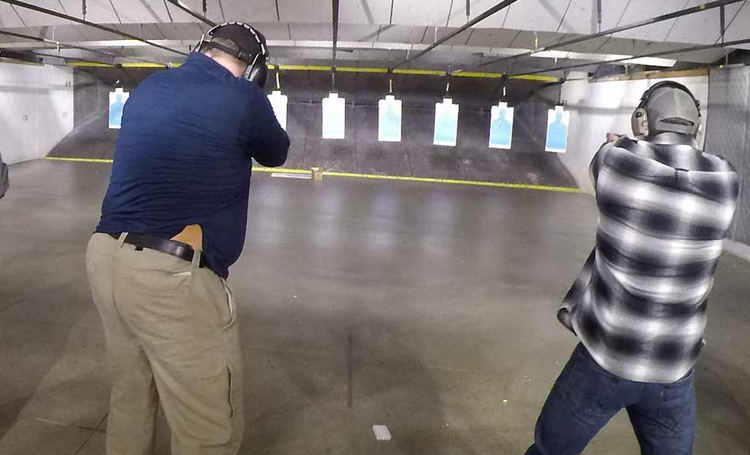Every responsible gun owner should be concerned with their safety and the safety of those who interact with firearms within their immediate vicinity. Irresponsible handling of firearms can lead to tragic consequences, including injuries and fatalities. Citizens who cannot handle a gun safely should be seen as irresponsible, as the reckless use of firearms poses a significant risk to themselves and others. It is essential to understand and adhere to the principles of responsible gun ownership to prevent accidents and tragedies.
Negligent Discharges and Untrained Individuals
Sadly, many gun-related accidents, particularly those involving children or inexperienced individuals, can be attributed to the negligent discharge of firearms by untrained or poorly trained individuals. It is not uncommon for teenagers to engage in risky behavior, posing with firearms on social media to appear "cool" and inadvertently causing harm. One alarming example is when an individual in Texas callously disregarded firearm safety while modifying his loaded weapon and shot his neighbor through his apartment wall, killing him. All gun owners should apply common sense along with the four rules of firearm safety to prevent property damage or injuries to themselves or others.
The Four Rules of Firearms Safety
To ensure responsible firearm handling, it is essential to follow the four fundamental rules of firearms safety:
- Treat every gun as if it's loaded.
- Keep your finger off the trigger until you are ready to fire.
- Never point the gun at something unless you intend to destroy it.
- Be aware of your target and what is beyond it.
Educational and Training Resources
If you already own a firearm but lack the necessary knowledge and skills to handle it safely, you are putting yourself and others at risk. Seek out reputable training academies or shooting ranges and find a qualified instructor who can teach you how to properly hold, fire, and maintain your firearm. Knowledge and practice are key to responsible gun ownership.
Choosing a Firearm: Due Diligence and Research
For those considering the purchase of their first firearm, it is vital to conduct thorough research before making a selection. Some key aspects to investigate include:
- Understanding the firearm's action type (semi-auto, pump, bolt action, lever action, etc.).
- Learning how to properly load and unload your chosen firearm.
- Understanding the operation of any safety mechanisms.
- Identifying the appropriate ammunition for your firearm.
Errors resulting from a lack of research can be dangerous, like when shooters attempt to fire the wrong ammunition in their firearms (such as putting a 9x18 cartridge in a 9mm Luger firearm or a 5.56 in a .223 barrel), which can have catastrophic consequences. Always err on the side of caution, and never assume that different cartridges are interchangeable if the numbers are “close.” Guesstimation is a dangerous thing with firearms.
Irresponsible use of firearms can have devastating consequences, endangering both individuals and those in their proximity. By following the four fundamental rules of firearms safety, we can significantly reduce the risk of accidents and tragedies. Additionally, seeking out educational and training resources is essential for those who own or plan to purchase firearms, ensuring they acquire the necessary knowledge and skills to handle these weapons safely. Furthermore, thorough research is essential when selecting a firearm, as errors resulting from inadequate knowledge can have dangerous implications. The need for vigilance cannot be overstated, especially when dealing with firearms, as the wrong assumptions or decisions can lead to catastrophic outcomes. Responsible gun ownership is a shared responsibility that, when upheld, safeguards lives and promotes a culture of safety and awareness within the firearm community.

